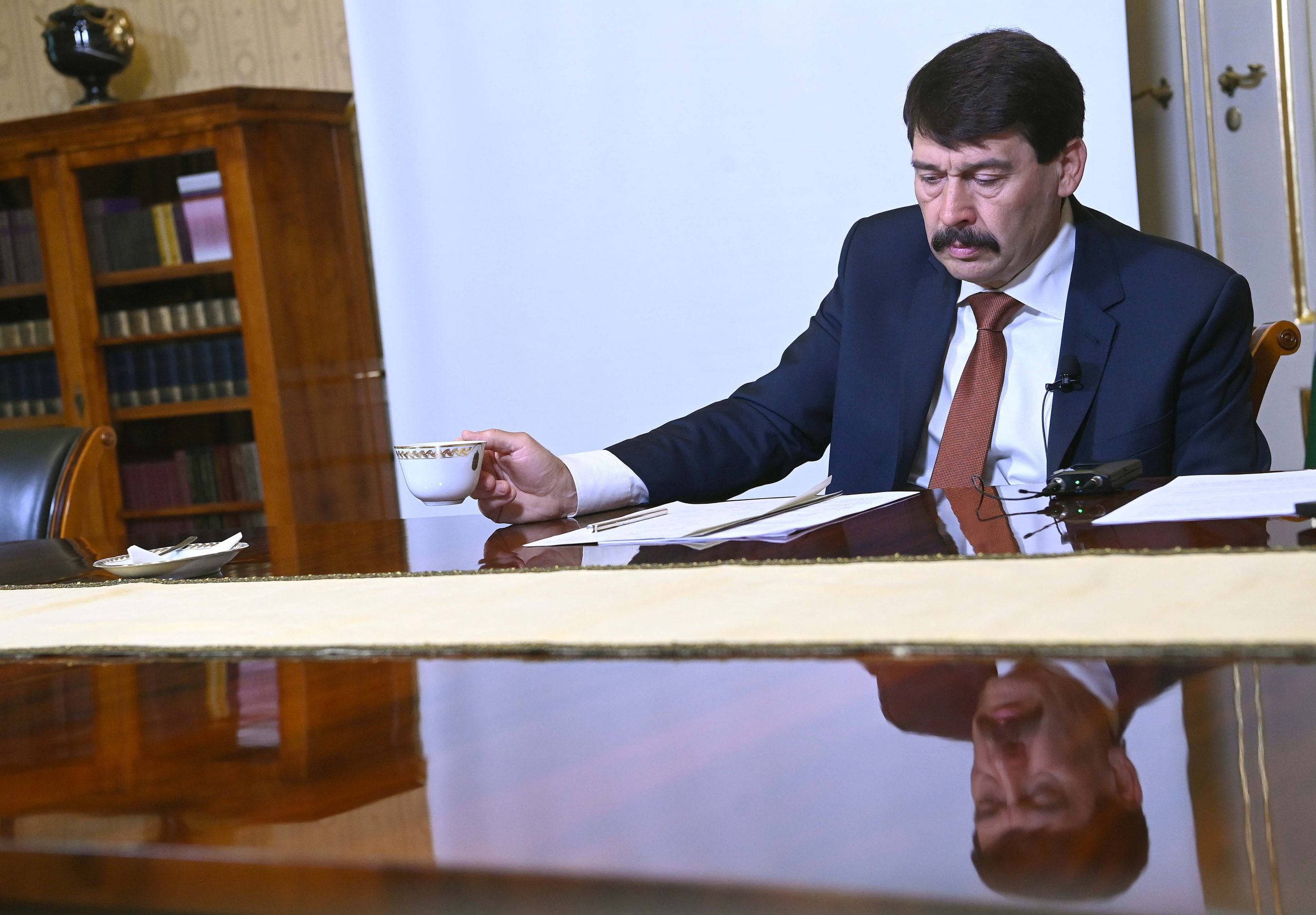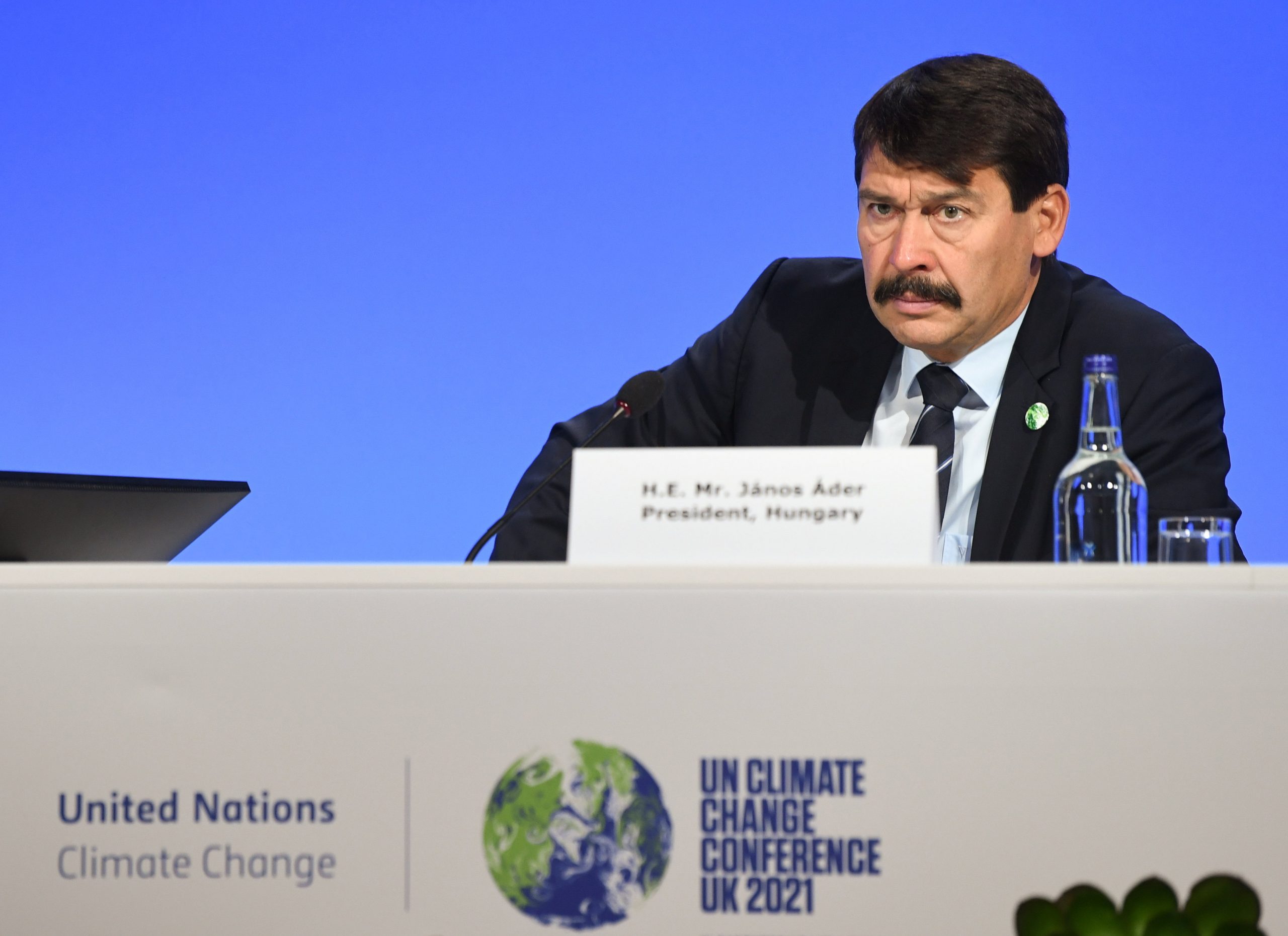
Áder called for "an honest introspection by each country on what they have achieved", saying that action was needed instead of "PR stunts".Continue reading

This week’s United Nations COP26 conference in Glasgow did not yield enough specific commitments aimed at combating climate change, President János Áder said on Wednesday.
Speaking to public broadcaster Kossuth Radio, Áder said the fact that the world’s top emitters had failed to make substantial progress at the G20 summit in Rome over the weekend had already been “a bad sign” ahead of the COP26 conference. Meanwhile, China, Brazil, Russia and Turkey were not even present in Glasgow, he added.
Six years ago countries joined the Paris climate accord on a voluntary basis, the president noted. They agreed to review their progress on the commitments agreed on in the pact in five years’ time. These, Áder noted, included a reduction in CO2 emissions and keeping global warming below 2 degrees C. as against pre-industrial levels. But, he added, it had already been clear in Paris that the world would not even succeed in limiting global warming to the minimum target, let alone 1.5 degrees. “And the only reason why this target made it into the agreement was because the small island countries wouldn’t have signed it without it, as they’re the ones most threatened by climate change if they are flooded by the rising waters,” he said.
Áder said more and more was being made of the 1.5 degree C. target even though the world’s chances were fading to meet even the 2 degree target. If this keeps up, global temperatures will rise by 2.7 degrees, he said.
The president said many had expected the Glasgow conference to produce an agreement on phasing out fossil fuel subsidies, a ban on the construction of new coal-fired power plants, or a deal on developed countries mobilising 100 billion dollars per year in climate finance to developing countries. So far, some 80 billion dollars has been mobilised for this purpose, with the EU27 having contributed their share, he said.
As regards the positive takeaways from the conference, Áder welcomed India’s commitment to achieve climate neutrality by 2070 and to have 50 percent of its electricity come from renewable energy by 2030. The commitment by 100 countries to halt and reverse forest loss by 2030 can also be considered a step in the right direction, he added.
Meanwhile, Hungary “has nothing to be ashamed of”, Áder said. It accounts for just 0.13 percent of global carbon dioxide emissions but unlike most countries, it has made specific commitments with specific deadlines, Áder said, noting that the goal for Hungary to become climate neutral by 2050 has been enshrined into law. In addition, new buses used in public transport will all be electric by 2030 and the country will also increase the capacity of its solar plants, he said. Also, after losing 90 percent of its forests under the WWI Trianon Peace Treaty a century ago, Hungary has been steadily increasing its forested areas, he said.
Concerning the Planet Budapest 2021 sustainability expo taking place from Nov. 29 to Dec. 5, the president said the event will also feature a business expo with the participation of the Visegrad Group countries that will offer solutions to several subproblems.
Featured photo by Tibor Illyés/MTI